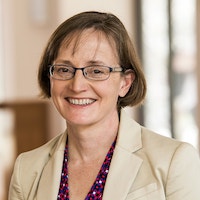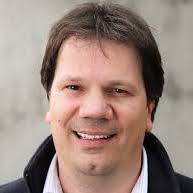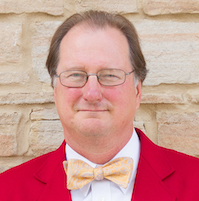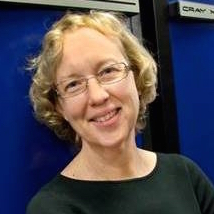Next Steps in Quantum Computing: Computer Science’s Role
May 22-23, 2018
The Fairmont Washington DC
Fairmont Washington D.C., Georgetown, 2401 M St NW, Washington, DC 20037, USA
Event Contact
Ann Drobnis
adrobnis@cra.org
Event Type
2018 Events, 2018 Visioning Activities
Event Category
Tags
While it has been known for some time that quantum computers could in principle solve problems that are intractable on today’s supercomputers such as breaking public key cryptography and solving hard computational chemistry problems, the field of quantum computing is still at an early stage. Recent progress in realizing small scale quantum computers is encouraging and these devices may scale up further in the near future. However, currently, only very few opportunities exist to bring quantum computing experts together with experts from other computer science fields with much to offer: programming languages, compiler design, computer architecture, and design automation in an exchange of ideas.
The Next Steps in Quantum Computing workshop aims at bridging this gap and to bring together an interdisciplinary crowd with broad participation of colleagues from classical computer science disciplines as well as domain-experts from quantum computing. Researchers in the US as well as decision makers in US government agencies are the intended target audience, but the workshop is meant to be inclusive. The general organization will allow to have ample time for discussions and personal interactions to facilitate community building around the quantum computing vision and provide a natural entry point for computer scientists who are not yet actively participating in quantum computing.
The workshop aims to bring together researchers from quantum computing, computer architecture, electronic design automation, compiler construction, and classical programming languages. Open questions that we anticipate this group to tackle include new methods for circuit synthesis and optimization, compiler optimizations and rewriting, embedded languages versus non-embedded languages, implementations of type systems and error reporting for quantum languages, and techniques for verifying the correctness of quantum programs.
May 22, 2018 (Tuesday)
| 11:00 AM | Welcome and Overview | Kennedy Ballroom |
| 11:15 AM | Participant Introductions | Kennedy Ballroom |
| 11:45 AM | Session 1 - Algorithms | Kennedy Ballroom |
| 12:05 PM | Algorithms Group Discussion | Kennedy Ballroom |
| 12:30 PM | Algorithm Breakouts
| Imperial I, Imperial II, and Decatur Questions to answer:
|
| 01:15 PM | Algorithms Report Out | Kennedy Ballroom |
| 01:30 PM | Lunch | Kennedy Ballroom |
| 02:30 PM | Session 2 - Technologies | Kennedy Ballroom |
| 02:50 PM | Technologies Group Discussion | Kennedy Ballroom |
| 03:15 PM | Technologies Breakout
| Imperial I, Imperial II, and Decatur Questions to answer:
|
| 04:00 PM | Technologies Report Out | Kennedy Ballroom |
| 04:15 PM | BREAK | Kennedy Foyer |
| 04:30 PM | Session 3 - Toolchains/Programming | Kennedy Ballroom |
| 04:50 PM | Toolchains/Programming Group Discussion | Kennedy Ballroom |
| 05:05 PM | Toolchains/Programming Breakout
| Imperial I, Imperial II, and Decatur Questions to answer:
|
| 06:00 PM | Toolchains/Programming Report Out | Kennedy Ballroom |
| 06:15 PM | Conclude Day 1 | Kennedy Ballroom |
| 06:30 PM | Dinner | Roosevelt Room |
May 23, 2018 (Wednesday)
| 07:30 AM | Breakfast | Roosevelt Room |
| 08:30 AM | Regroup | Kennedy Ballroom |
| 08:45 AM | Session 4 - Architecture | Kennedy Ballroom |
| 09:05 AM | Architecture Group Discussion
| Kennedy Ballroom Questions to answer:
|
| 09:30 AM | Architecture Breakout Groups | Imperial I, Imperial II, and Decatur |
| 10:30 AM | BREAK | Kennedy Foyer |
| 11:00 AM | Architecture Report Out | Kennedy Ballroom |
| 11:15 AM | Bringing the 4 Sessions Together | Kennedy Ballroom |
| 12:00 PM | Lunch
| Roosevelt Room Could include industry pipeline, diversity of the field, standardization, etc. |
| 01:00 PM | Discussion of Other Topics | Kennedy Ballroom |
| 02:30 PM | BREAK | Kennedy Foyer |
| 02:45 PM | Report Writing | Kennedy Ballroom |
| 04:00 PM | Conclude Workshop |
Margaret Martonosi, Princeton University |
Martin Roetteler, Microsoft |
Mark Hill, University of Wisconsin, Madison |
Kathy Yelick, University of California at Berkeley |
The Computing Community Consortium (CCC) will cover travel expenses for all participants who desire it. Participants are asked to make their own travel arrangements to get to the workshop, including purchasing airline tickets. Following the symposium, CCC will circulate a reimbursement form that participants will need to complete and submit, along with copies of receipts for amounts exceeding $75.
In general, standard Federal travel policies apply: CCC will reimburse for non-refundable economy airfare on U.S. Flag carriers; and no alcohol will be covered.
For more information, please see the Guidelines for Participant Reimbursements from CCC.
Additional questions about the reimbursement policy should be directed to Ann Drobnis, CCC Director (adrobnis [at] cra.org).
Applications:
Technologies
Toolchains/Programming
Architecture
Below is a list of relevant papers submitted by workshop participants:
Efficient Distributed Quantum Computing, by Robert Beals, et al.
Fault-tolerant quantum error correction for Steane’s seven-qubit color code with few or no extra qubits, by Ben W. Reichardt
- Submitter comment: Can we automatically compile and find space saving techniques for fault-tolerant error correction?
Open Quantum Assembly Language, by Andrew W. Cross, Lev S. Bishop, John A. Smolin, Jay M. Gambetta
Physics, Topology, Logic and Computation: A Rosetta Stone, by John C. Baez, Mike Stay
- Submitter comment: I love this paper. It shows that quantum computing, topology, logic, and programming languages are intimately related. The paper might inspire ideas on how to adapt techniques and tools from one domain to the other.
Q#: Enabling scalable quantum computing and development with a high-level domain-specific language, by Krysta M. Svore, et al.
- Submitter comment: Broader discussion about Q#, Liquid, Quipper and related quantum programming languages would be welcome.
Quantum Algorithm Implementations for Beginners, by Patrick J. Coles, et. al.
- Submitter comment: This is a pool of relevant quantum codes for near-term machines and also about how they are gonna run on IBM machines. It is also easy to read for people from different backgrounds.
Quantum algorithms: an overview, by Ashley Montanaro
- Submitter comment: High-level and recent overview of quantum algorithms. It doesn’t discuss issues related to the meeting, like circuit synthesis, but should give an idea of what we would do with a large quantum computer.
Quantum Computing in the NISQ era and beyond, John Preskill
- Submitter comment: This is a slightly unconventional choice, but I think it is important to think about the needs and challenges for both near term and long term architectures. Just as different programming languages excel in different domains, I suspect that the compiling / architecture questions for the near term intermediate scale devices are different than those for long term error corrected devices. The attached paper is a very good review of what might be sitting in the near term intermediate scale regime.
QWIRE: A Core Language for Quantum Circuits, by Jennifer Paykin, Robert Rand, and Steve Zdancewic
The Steep Road Towards Robust and Universal Quantum Computation, by Earl T. Campbell, Barbara M. Terhal and Christophe Vuillot






